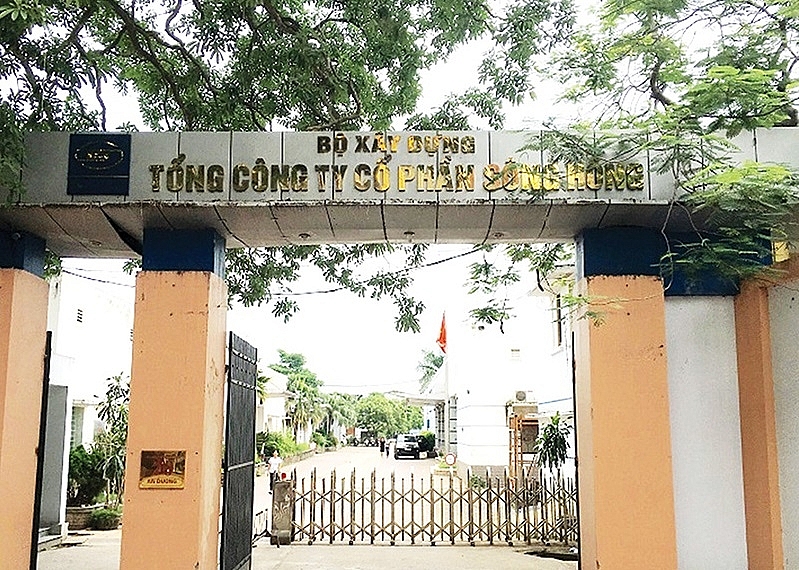Getting business onto the front foot
 |
| Ho Quoc Tuan, lecturer from Bristol University in the United Kingdom |
The Chinese economy is opening its doors to the wider world though its exports are still strongly decreasing due to cuts in orders. Many European economies are also slowly resuming their trade with their partners, and this shows that consumption and demand from these nations will not be able to bounce back immediately.
There has been a strong wave in wage reductions, layoffs, dismissals, and even bankruptcy. My friends working in the financial sector in Shenzhen said that the wave of bankruptcy among small- and medium-sized enterprises (SMEs) will surge along with that of banks with, for example, Gansu bank being recently disbanded. Also, debts incurred by Chinese state-owned enterprises will continue swelling.
No government, however financially strong they are, can fill up such big debts.
The State Bank of Vietnam has been extending its financial support to enterprises and people. However, such assistance will sooner or later have to stop, especially assistance to cover debts.Thus, while accepting an increase in public debt and boosting spending, the state would need to have more effective solutions to remove debts in the economy and support private enterprises, especially SMEs. However, it is first necessary to identify such debts.
The revenues of 19 state-owned economic groups and corporations managed by the Committee for Management of State Capital (CMSC) are forecast to reduce by almost VND280 trillion ($12.1 billion) in 2020. Seven of these 19 entities have begun not to ensure financial balances.
In order to partly solve this thorny issue, the CMSC has proposed access to a state-funded credit package. However, with such consecutive losses made by these state-owned enterprises (SOEs), will the package be able to help them out of difficulties?
 |
| Song Hong Corporation was already struggling severely before the pandemic arrived, Photo: Le Toan |
Bouncing back
For instance, just before the COVID-19 pandemic swept over the world, Song Hong Corporation was reported to have been suffering from losses of trillions of VND – equivalent to hundreds of millions of US dollars – meaning a big risk of losing all state-owned capital. Thus, it will be unfair if this instance is included in the list of losses caused by the current crisis.
Before the outbreak, Song Hong was almost clinically dead. From this case, it is also necessary to remember the sad stories of 12 major projects managed by the Ministry of Industry and Trade and with a loss of more than VND12 trillion ($521.74 million). Currently many of these projects are still bogged down in huge difficulties.
Thus it would need to stress that providing financial assistance to such projects and groups and corporations may not only lift them out of difficulties, but instead may drive them into bigger debts. No light may be seen at the end of the tunnel in these cases.
Meanwhile, numerous SMEs that have been performing well but are affected by the pandemic would need support from the state in order to strongly bounce back.
This is a wise way of support as effective firms must be assisted. Those that are very flexible and active will boost production and business and rake in profits, and then they can pay all debts, unlike many poorly-performing SOEs.
If these big SOEs are provided with huge loans, it is unsure how much money will be left to support private enterprises, especially SMEs that are performing quite better – as Party General Secretary, State President Nguyen Phu Trong recently stated, the private economic sector must not be disregarded and fair treatment must be given to them. Thus there would be no reason why big SOEs should receive more support than SMEs.
However, one can argue that there will be thousands of people out of work if these SOEs go out of business. In the US, big corporations have also been calling for help from the government to avert bankruptcy.
But many US economic experts and managers of big investment funds have opposed this call, arguing that the US government needs to pour money into social security activities, including supporting those sacked by these corporations, and to let the corporations collapse. A zombie remains nothing but a corpse, regardless of how much blood it gets.
In the US, a strong wave of debate and protests have occurred against many listed firms and those backed by private investment funds receiving support from credit packages for small-scaled enterprises. Many have demonstrated their dissatisfaction because many big companies with numerous advantages in access to capital in the financial market have been scrambling for support earmarked for small-scaled firms.
Thus the problem is that it is necessary to identify who can cause and embrace bad debts before thinking about saving them. In the current context of the economy facing massive difficulties, now is the time to determine how to remove losses, and not pour more money into these huge debts.
Radical solutions
The US and the EU are considering the establishment of toxic debt banks. The European Central Bank has twice urged the EU to found such a bank for the Eurozone in order to shift billions of toxic debts out of the accounting sheets of credit institutions.
The goal is also to provide bigger liquidity for private-owned commercial banks so that they can continue extending loans to customers. Yannis Stournaras, Governor of the Bank of Greece, supports this view, stating that only a toxic debt bank can help remove overdue debts quickly.
Meanwhile, Vietnam has past experience in dealing with this issue through the establishment of Vietnam Asset Management Company (VAMC) in 2013. However, difficulties in solving assets and bonds of VAMC remain, such as the purchase and sale of debts at state-owned commercial banks.
Establishing a toxic debt bank and allowing it to perform more freely under the direct management and supervision of the State Bank of Vietnam can enable VAMC to perform more effectively than it is doing now.
More than ever, this solution needs to be applied. Vietnam needs to radically take advantage of its experience in dealing with bad debts so as to support banks before everything becomes worse. Renowned investor George Soros has recently advanced an idea about issuing perpetual bonds in Europe in order to finance the European Recovery Fund. I think that this is a suitable solution to answer the thorny question of who to save. Because ministries and agencies have complicated relations with SOEs, it will be difficult to identify which enterprises will be, and should be, supported transparently.
The best solution is to establish a post-pandemic reconstruction fund in order to co-ordinate all support activities and provide money under clear, transparent, easy-to-understand, and easy-to-supervise standards, regardless of who needs support. This fund can provide guarantees for SMEs and micro-sized enterprises in accessing loans at very low lending rates at commercial banks, within a tenure of one or two years, and with limited loans suitable to the scale of each enterprise.
The processes and procedures for the loans and guarantee must be simplified so that National Assembly members and the media can supervise. This fund should be operated by an independent group of people who are not from the government and ministries. It can be provided with capital quickly so that it can make swift decisions about what sectors and enterprises, and whom to extend financial assistance to. To this end, the fund must have input money. So where will the money come from?
The government could issue perpetual bonds, with the benefit that it can help the government lessen its burden in debt payment as it will never have to pay original interest, and the government will not have to look for a new sponsorship source when the bond matures.
Thus, though it may increase public debt, the bond is quite safe as it is guaranteed by the government and will not remarkably pressurise fiscal policy. This is a sturdy solution as it ushers a way out for the problem of state budget spending and seeking loans to support activities against COVID-19.
The bonds can be issued in the market in order to attract banks who can use the bonds as reserved assets. In the case of no-one buying such bonds, the central bank can purchase them.
What the stars mean:
★ Poor ★ ★ Promising ★★★ Good ★★★★ Very good ★★★★★ Exceptional
Themes: COVID-19
- 67 million children missed out on vaccines because of Covid: UNICEF
- Vietnam records 305 COVID-19 cases on October 30
- 671 new COVID-19 cases recorded on October 1
- Vietnam logs additional 2,287 COVID-19 cases on Sept. 21
- People’s support decisive to vaccination coverage expansion: official
Related Contents
Latest News
More News
- State corporations poised to drive 2026 growth (February 03, 2026 | 13:58)
- Why high-tech talent will define Vietnam’s growth (February 02, 2026 | 10:47)
- FMCG resilience amid varying storms (February 02, 2026 | 10:00)
- Customs reforms strengthen business confidence, support trade growth (February 01, 2026 | 08:20)
- Vietnam and US to launch sixth trade negotiation round (January 30, 2026 | 15:19)
- Digital publishing emerges as key growth driver in Vietnam (January 30, 2026 | 10:59)
- EVN signs key contract for Tri An hydropower expansion (January 30, 2026 | 10:57)
- Vietnam to lead trade growth in ASEAN (January 29, 2026 | 15:08)
- Carlsberg Vietnam delivers Lunar New Year support in central region (January 28, 2026 | 17:19)
- TikTok penalised $35,000 in Vietnam for consumer protection violations (January 28, 2026 | 17:15)

 Tag:
Tag:




















 Mobile Version
Mobile Version